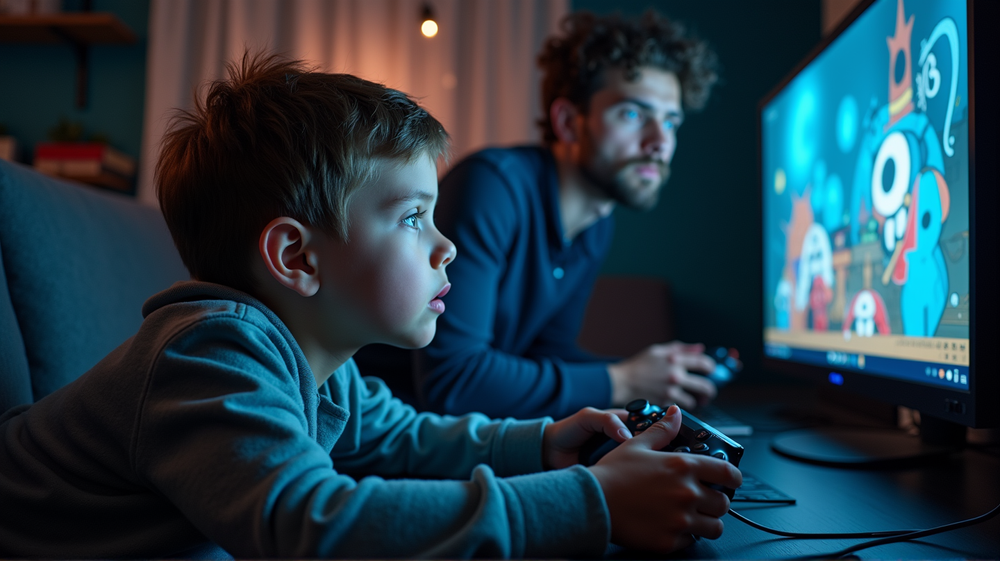Unmasking the Screen Time Culprit: Video Games and Child Mental Health
In an age where screens act as companions, the alarming truth about their impact on young minds unfolds with surprising findings. A compelling revelation from a major international study by the American Psychological Association points the blame not at social media, but at a seemingly innocuous habit: video gaming.
The Hidden Adversary: Video Games
While social platforms often face scrutiny, this recent research shifts the spotlight to video games as a significant contributor to emotional and behavioral issues in children aged 6 to 10. According to The Economic Times, screen time, particularly gaming, is intricately linked to accelerating struggles in young children such as sadness, anxiety, and anger management difficulties. Ironically, the very refuge children seek may be exacerbating their troubles.
The Vicious Cycle of Screen Time
Delving into the findings, Dr. Michael Noetel, a lead author and an associate psychology professor at Queensland University, underscores a “vicious cycle.” Children with pre-existing emotional or behavioral challenges often resort to games for solace. Yet, this particular screen habit potentially magnifies their issues, proving that not all screen time is equal.
Age Matters - Why Children 6 to 10 are Most Affected
The study’s analysis, reviewing 117 studies with data encapsulating over 292,000 children globally, reveals a potent impact on specific age groups. Children aged 6 to 10 who game excessively show a noticeable inclination towards developing emotional and social disorders.
Understanding the Risks: Recommendations for Parents
Targeting intervention at the parental level, experts encourage vigilant monitoring of not just how long, but also what children are engaging with on their screens. Dialogues about household favorites and transitioning towards real-world interactions are paving stones for nurturing balanced development.
Safeguarding Emotional Well-being
Children’s bedtime routines also come under scrutiny; reduced screen time at night aids emotional resilience. By emphasizing physical play, quality sleep, and direct human interaction over screens, families can fortify the developmental foundation.
The Varied Facets of Screen Time
While screen time for education or social interactions may not warrant significant caution, it’s gaming that poses the most severe risk. Understanding these dynamics can aid in fostering environments where children thrive not just virtually, but in reality too.
This sobering insight offers a new lens through which to view children’s screen time, urging parents and guardians to reevaluate gaming habits and their long-term impacts on blossoming minds.




